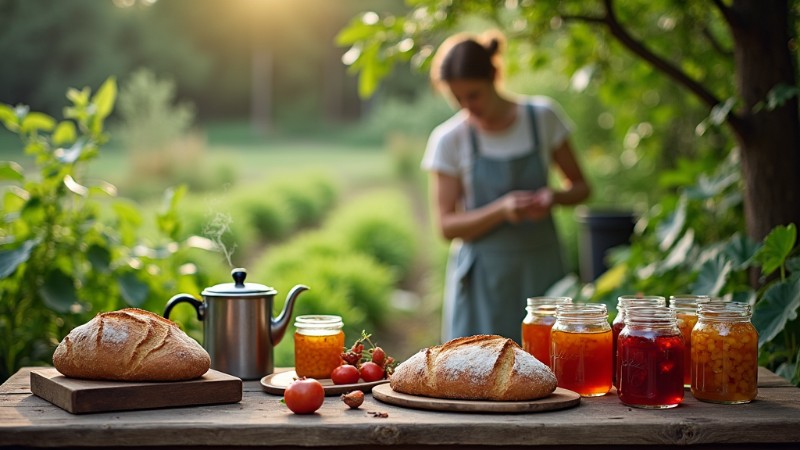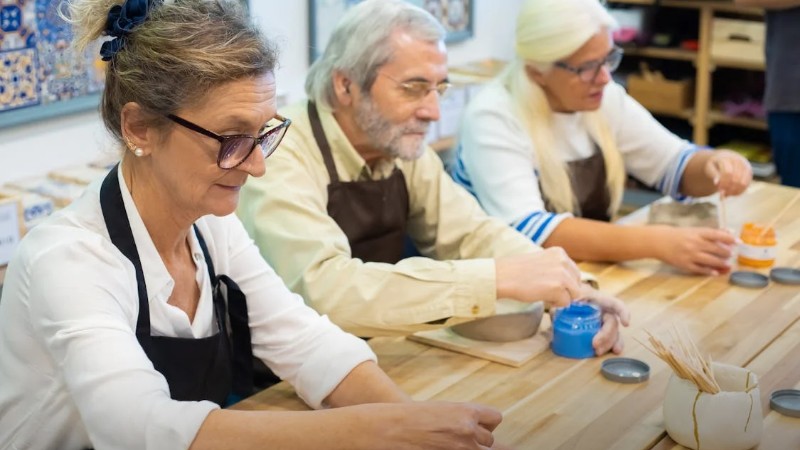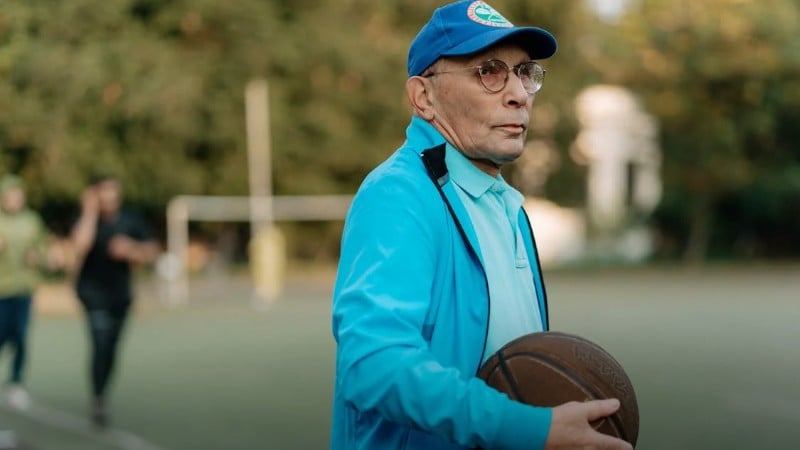In recent years, traditional skills such as canning, gardening, and baking sourdough bread have seen an impressive resurgence. This movement, driven by a desire for sustainability, self-sufficiency, and a slower pace of life, is capturing the attention of people across generations.
No longer seen as outdated, these hands-on hobbies are becoming essential life skills, offering tangible rewards that extend beyond mere sustenance. They allow individuals to connect deeply with nature, exercise greater control over their food sources, and build community bonds that modern, digital life often lacks.
Key Takeaways
A resurgence in traditional skills like canning, gardening, and baking is driven by a desire for sustainability, self-sufficiency, and community building.
- Hands-on hobbies offer tangible rewards beyond sustenance, including connecting with nature, exercising control over food sources, and building community bonds.
- The process of preserving foods through methods like canning, pickling, or fermenting minimizes waste and allows for year-round enjoyment of seasonal produce.
- Engaging in hands-on hobbies provides mental health benefits, such as reducing stress and promoting mindfulness, while also fostering social connections and a sense of purpose.
Rediscovering self-sufficiency
In a world where convenience foods and instant gratification are commonplace, there is a notable shift toward self-sufficiency and traditional skills. Concerns about the ecological impact of commercial farming, food safety, and packaging waste are encouraging people to reconsider how they source and prepare their food.
With more individuals seeking to reduce their carbon footprint and increase their environmental awareness, practices such as canning, fermenting, and home gardening have gained new popularity. People are not only embracing these practices as a means to gain independence from large food corporations but also as a way to promote sustainability in their own lives.
The process of preserving foods through methods like canning, pickling, or fermenting is particularly appealing. By engaging in these activities, individuals can store seasonal produce and enjoy it year-round, minimizing the need to buy out-of-season imports.
Furthermore, the act of preservation prevents food waste, as excess produce from backyard gardens can be canned or pickled for later use. In this way, canning offers a practical way to stock up on nutritious foods while also helping to cut down on household waste—a small but impactful contribution to environmental preservation.
Gardening, too, has seen a revival as individuals grow fruits, vegetables, and herbs in their backyards, balconies, and even indoor spaces. By cultivating their own food, people gain more control over the quality of their produce, avoiding pesticides and reducing dependency on supermarket supply chains.
For many, gardening provides a sense of satisfaction that cannot be found in digital tasks, offering hands-on engagement and the pride of watching plants grow from seed to harvest. The growth cycle teaches patience, responsibility, and care, as each step in the process—planting, watering, weeding, and finally harvesting—requires active attention and effort.
Community building through shared hobbies
Hands-on hobbies like canning, baking, and gardening are not solely individual endeavors; they are increasingly becoming social activities that foster connections within communities. In the age of social media, platforms such as TikTok, Instagram, and YouTube have enabled these traditional skills to reach new, younger audiences.
Influencers and content creators showcase the processes and rewards of hands-on hobbies, often presenting them as approachable and enjoyable pursuits. This digital exposure has been pivotal in removing the barriers to entry for many people, making it easy for beginners to see how they, too, can participate in these activities.
These online communities have become invaluable for hobbyists seeking advice, inspiration, and support. Social media tutorials provide step-by-step instructions for canning, gardening, and baking, while online forums allow participants to discuss challenges and share tips.
A novice gardener, for example, can quickly find information on the best soil for tomatoes or how to start a compost pile, while sourdough bakers can troubleshoot recipes and share their creations. These online spaces make it possible for people of all skill levels to connect and learn from one another.
Offline, community workshops and local gardening programs are also experiencing a revival, offering people the opportunity to engage in these hobbies collectively. Community gardens, for example, are becoming popular as more cities and neighborhoods establish shared spaces where people can grow food together.
These spaces serve not only as gardens but as meeting places where neighbors come together to work side by side, share techniques, and enjoy the harvest. Similarly, workshops on canning, fermentation, and sourdough baking are cropping up in community centers, where individuals can learn these skills from experienced practitioners.
Exploring heritage and culture through food
Hands-on hobbies like cooking, gardening, and food preservation provide a unique gateway to exploring and preserving cultural heritage. Many traditional recipes and techniques have been passed down through generations, holding stories and customs that connect people to their roots.
For families, introducing children to these hobbies allows them to learn about food in a way that goes beyond the grocery store. Parents can explain the origins of certain vegetables, fruits, or recipes, teaching children how different foods have traveled across continents and cultures before reaching their table.
For instance, simple activities like making pickles or fermenting cabbage into sauerkraut can open conversations about cultural traditions and culinary techniques from around the world.
Children are naturally curious, and these activities can be a fun and educational way to foster an appreciation for diversity. By participating in gardening, children also gain firsthand experience with food cultivation, learning the effort it takes to grow and care for plants.
The therapeutic power of hands-on hobbies
In addition to physical and social benefits, engaging in hands-on hobbies can offer significant mental health advantages. Modern life, with its emphasis on screens and speed, often leaves little room for quiet reflection and slow-paced activities.
Hobbies like baking, gardening, and canning offer a much-needed antidote to digital overload, providing an opportunity to unplug and focus on tangible, productive tasks. These activities are naturally calming, engaging the senses and promoting mindfulness.
Gardening, for instance, is known to have therapeutic effects, with research showing that contact with soil can even have mood-boosting properties. Known as horticultural therapy, this practice has been used to reduce symptoms of anxiety and depression, as the act of tending to plants promotes a sense of purpose and tranquility.
In the garden, people find a space where they can slow down, connect with nature, and gain satisfaction from watching their efforts come to fruition.
Similarly, the methodical process of sourdough baking is a soothing ritual that demands patience and focus, offering a respite from the fast-paced demands of daily life. The slow fermentation process requires careful attention, encouraging bakers to be present at the moment.Engaging in this kind of hands-on work can create a state of flow, in which individuals become so absorbed in the task that they temporarily forget their worries.
The mental health benefits of these activities are further amplified by the community support they foster. Local workshops, community gardens, and online forums provide hobbyists with a network of like-minded individuals who share their interests and can offer support and encouragement. This sense of connection helps to combat loneliness and provides a support system that many people lack in today’s digital-focused society.
A sustainable, satisfying path forward
The growing popularity of hands-on hobbies like canning, gardening, and baking reflects a broader cultural shift toward sustainability, self-sufficiency, and mindful living. This revival of traditional skills is more than a nostalgic trend—it is a meaningful response to the stresses of modern life, providing a way for people to reconnect with nature, reduce their environmental impact, and foster social bonds.
As these hobbies continue to gain traction, they offer a path forward that prioritizes health, community, and sustainability, underscoring the value of slowing down and appreciating the world around us.
For those interested in embarking on this journey, starting with small, manageable projects can make these hobbies accessible and enjoyable. Whether it’s planting a small herb garden, trying a simple canning recipe, or baking a loaf of sourdough bread, these activities offer a hands-on experience that brings immense satisfaction.
In reconnecting with traditional skills, individuals are not only preserving a piece of the past but also crafting a more sustainable and fulfilling future for themselves and their communities.















